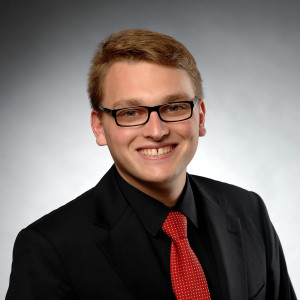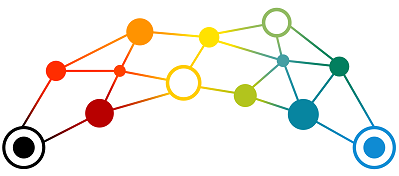
Welchen universitären Hintergrund haben Sie und wie haben Sie Ihren Weg in das StArfrica-Team gefunden?
Ich habe zunächst im Bachelor Wirtschaftswissenschaften an der Friedrich-Schiller-Universität in Jena studiert und habe ein Vertiefungsmodul zum Thema Entrepreneurship bei Prof. Dr. Fritsch gehört. Die Themen Entrepreneurship und regionale Entwicklung haben mich direkt sehr stark interessiert und ich absolvierte daher anschießend ein Praktikum beim K1 Gründerservice der FSU Jena. Da ich noch mehr über Entrepreneurship lernen wollte, studierte ich im Master “Entrepreneurship und Innovationsmanagement” an der Bergischen Universität Wuppertal. Als ich die Stellenausschreibung zur EXIST-Potentiale-Antragsphase an der Universität Koblenz-Landau sah, wusste ich, dass das genau das ist, wonach ich gesucht habe.
What is your academic background and how did you find your way into the StArfrica team?
I first studied economics at the Friedrich-Schiller-University in Jena and took a special module on entrepreneurship with Prof. Dr. Fritsch. The topics entrepreneurship and regional development directly interested me very much and therefore I completed an internship at the K1 Gründerservice of the FSU Jena. Since I wanted to learn more about entrepreneurship, I studied in the Master “Entrepreneurship and Innovation Management” at the University of Wuppertal. When I saw the job advertisement for the EXIST-Potential application phase at the University of Koblenz-Landau, I knew that this was exactly what I was looking for.
Seit wann sind Sie dabei, was sind Ihre Aufgaben und welche Erfahrungen bringen Sie mit?
Ich bin seit April 2019 am ZIFET tätig und habe gemeinsam mit dem Team um Prof. Dr. Harald von Korflesch das Pilotvorhaben eingeworben. Nun bin ich als StArfrica-Projektleiter in Koblenz tätig und bin in dieser Rolle insbesondere für die Sensibilisierung und Beratung von Startups und Unternehmen zuständig.
When did you join the project, what are your tasks and what experience do you bring with you?
I have been working at ZIFET since April 2019. Together with the team ofProf. Dr. Harald von Korflesch, I acquired the pilot project StArfrica. Now I am working as StArfrica project manager in Koblenz and in this role I am especially responsible for sensitization and consulting of start-ups and companies.
Wie hat das Pilotvorhaben Ihr Interesse geweckt? Was ist Ihre Motivation, daran teilzuhaben?
Ich hatte die Gelegenheit, das Pilotvorhaben von Anfang an mitzuentwickeln. Damals wollten wir uns auf die Projektsäule “Internationalisierung” von EXIST-Potentiale bewerben und dort viel unser Blick zum ersten Mal nach Afrika. Da die Universität Koblenz schon länger Verbindungen nach Ruanda pflegt und Afrika ein unheimlich großes wirtschaftliches Potential birgt, finde ich es sehr spannend, ein Teil dieser Reise zu sein.
How did the pilot project arouse your interest? What is your motivation to take part in it?
I had the opportunity to help develop the pilot project from the beginning. At that time, we wanted to apply for the project pillar “Internationalization” of EXIST-Potentials and there we took our first look at Africa. Since the University of Koblenz has had connections to Rwanda for a long time and Africa has an incredibly large economic potential, I find it very exciting to be part of this journey.
Was verbinden Sie mit Ruanda? Waren Sie schon einmal in dort? Wenn ja, welche Erfahrungen haben Sie gemacht? Was hat Sie überrascht/erschreckt/begeistert? Falls nicht: Haben Sie vor, nach Ruanda zu reisen und wenn ja, was erhoffen Sie sich? Was zieht Sie an, was sind Ihre Erwartungen?
Ich war leider bisher nur einmal in Kigali, der Hauptstadt Ruandas, in der ich aber sehr positive Erfahrungen gemacht habe. Die Leute sind hochmotiviert und fortschrittsbegeistert. Man trifft sehr viele junge Menschen in Führungspositionen und hat wirklich das Gefühl, dass sie ihr Land voranbringen und zum „Singapur Afrikas“ machen wollen.
What do you associate with Rwanda? Have you ever been there? If so, what experiences have you had there? What surprised/frightened/enthused you? If not: Do you plan to travel to Rwanda and if so, what do you hope to achieve? What attracts you, what are your expectations?
Unfortunately, I have only been to Kigali, the capital of Rwanda, once before, but I have had very positive experiences there. The people are highly motivated and enthusiastic about progress. You meet a lot of young people in leading positions and really have the feeling that they want to advance their country and make it the “Singapore of Africa”.
Welchen Erfolg wünschen Sie sich für das Projekt StArfrica?
Für das Projekt wünsche ich mir vor allem, dass es Deutschland und Afrika, beziehungsweise Ruanda, einander näherbringt, viele wirtschaftliche Kooperationen entstehen und es für beide Seiten mehr Erfolge bringt, als wir erwarten können. Aus dem Pilotvorhaben soll sich ein dauerhaftes Projekt entwickeln, das Europa und Afrika verbindet. Es wäre schön, wenn wir gemeinsam mit Ruanda als Partner und Freunde an den zukünftigen Erfolgen des Landes teilhaben könnten.
What success do you wish for the StArfrica project?
I wish that the project will bring Germany and Rwanda closer together, that many economic cooperations will develop and that it will bring more success for both sides than we can expect. The pilot project should develop into a lasting project that connects Europe and Africa. It would be nice if we could share in the country’s future successes together with Rwanda as partners and friends.
